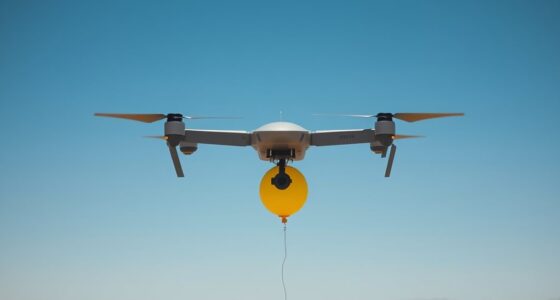South Korea's National Intelligence Service (NIS) recently arrested a spy ring involved in selling critical semiconductor technology to North Korea. This operation underscores the escalating espionage threats amid rising tensions. The NIS emphasized its commitment to countering these threats, unveiling sophisticated tactics used by the ring. Recruitment targeted civic groups and labor unions, further complicating national security. To understand the broader implications of these arrests, you might want to uncover the details of ongoing investigations.
Key Takeaways
- The NIS recently arrested a spy ring on Jeju Island involved in selling semiconductor technology to North Korea.
- The arrests emphasize the ongoing threat of espionage against South Korean technological advancements.
- North Korean hackers have previously targeted South Korean semiconductor firms, raising concerns about data security.
- The National Security Act empowers the NIS to conduct surveillance and investigations against espionage activities.
- The incident underscores the need for enhanced security measures within the semiconductor industry to prevent technology leaks.

As tensions with North Korea escalate, South Korea's National Intelligence Service (NIS) has made significant strides in countering espionage, recently arresting a spy ring on Jeju Island. This operation highlights the NIS's crucial role in safeguarding national security, especially amid rising threats from the North. The arrests, involving three individuals suspected of espionage, underscore the NIS's ongoing investigations into alleged spy rings and cyber activities linked to North Korea.
Under the National Security Act, the NIS has the authority to conduct surveillance and investigations aimed at preventing activities that could support anti-state organizations. This legal framework serves as a vital tool in their efforts to dismantle espionage operations. The recent focus on groups like the one in Jeju Island illustrates the NIS's commitment to uncovering and neutralizing threats that could undermine South Korea's stability. Three individuals arrested for violating the National Security Act further illustrates the NIS's determination to root out espionage within the country.
The NIS leverages the National Security Act to combat espionage and safeguard South Korea's stability from anti-state threats.
Reports suggest that members of the spy ring utilized sophisticated communication methods, including steganography, to covertly interact with North Korean agents. Moreover, the Changwon group accused of running an underground anti-state organization further demonstrates the NIS's extensive reach in combating espionage. These spies infiltrated civic groups and labor unions to recruit individuals sympathetic to North Korea's cause, showcasing the lengths to which these organizations will go to expand their influence. The use of sophisticated communication techniques is increasingly common in modern espionage tactics.
Investigations have revealed similar networks operating across South Korea's southern regions, indicating a far-reaching threat. Cyber espionage is another pressing concern, as North Korean hackers have recently targeted South Korean semiconductor companies. This tactic not only jeopardizes sensitive data, like product designs and facility photos, but it also poses a significant risk to the global semiconductor market.
The NIS advises companies to enhance their security measures, including applying updates and enforcing strict access controls to thwart potential breaches. Internationally, South Korea faces espionage threats from various fronts. For example, a South Korean national was arrested in Russia on spying charges, marking an unusual development in modern espionage. Additionally, a Chinese individual was accused of filming the NIS headquarters, further complicating the security landscape.
These incidents highlight the importance of vigilance in a world where espionage can strain diplomatic relations and lead to severe legal consequences. As the NIS navigates this complex environment, discussions around the National Security Act and its investigative powers continue. While some advocate for restoring the NIS's surveillance capabilities, others protest against its practices, reflecting the evolving narrative around national security and civil liberties.
Frequently Asked Questions
What Is the Significance of Chip Technology in Military Applications?
Chip technology's crucial in military applications because it powers advanced systems like adaptive communications and precision weaponry.
You rely on high-performance computing for intelligence analysis and nuclear deterrence modeling, ensuring strategic advantages.
These chips enhance AI capabilities in warfare, making them essential for modern military operations.
How Does South Korea's NIS Operate in Espionage Cases?
When South Korea's NIS operates in espionage cases, it employs a mix of advanced technology and human intelligence.
You'll see them using spyware and cyber tactics to infiltrate networks and gather crucial information. They monitor potential threats, especially from North Korea, while maintaining secrecy.
However, you should note that their methods often face scrutiny regarding legality and ethics, which complicates their efforts to effectively counter espionage activities.
What Penalties Do Spies Face in South Korea?
In South Korea, over 1,310 industrial property theft cases were reported between March 2019 and October 2023, highlighting the severity of the issue.
If you're involved in espionage, you could face hefty penalties. For industrial espionage, sentences may reach up to 18 years in prison, while technology infringement could see increases from six to nine years.
Judges are urged to impose stricter penalties, making leniency a rarity for first-time offenders.
How Does North Korea Typically Acquire Technology Illegally?
North Korea typically acquires technology illegally through clandestine operations and the use of intermediaries.
They target dual-use technologies that can be repurposed for military applications, often sourcing microelectronics and advanced machinery from various locations.
You'll find that they employ shell companies to navigate sanctions, along with exploiting ethnic communities to facilitate acquisitions.
Their methods are sophisticated, enabling them to evade international restrictions while addressing their technological shortfalls.
Are There International Implications for South Korea's Actions Against the Spy Ring?
Imagine a web of shadows stretching across borders, where every thread represents a potential breach of trust.
When South Korea takes action against a spy ring, it's not just a local issue; it sends ripples through international waters.
You'll see intensified sanctions enforcement, heightened cybersecurity cooperation among nations, and a renewed focus on intellectual property protection.
These actions could reshape diplomatic relations and influence global supply chains, highlighting the interconnected nature of modern security challenges.
Conclusion
The arrest of the spy ring symbolizes the ongoing battle for technological supremacy on the Korean Peninsula. Just as a delicate flower can thrive in harsh conditions, South Korea's NIS stands resilient against threats that seek to undermine its security. This operation is a reminder that vigilance is essential; protecting innovation is akin to nurturing a garden. By rooting out betrayal, South Korea not only safeguards its future but also sends a powerful message against those who would exploit its advancements.









